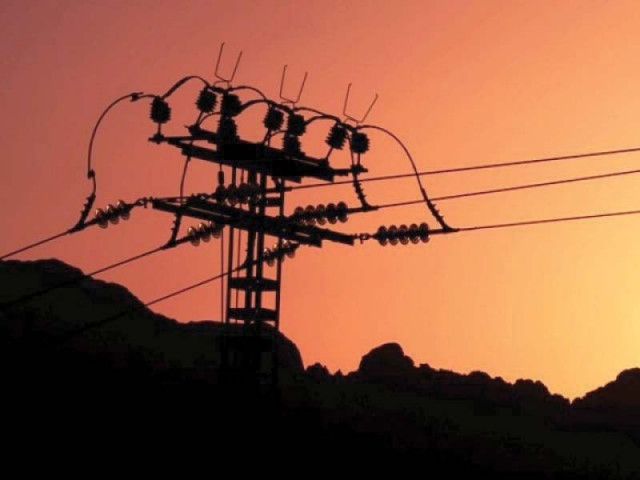Govt approves 4th power tariff hike in 11 months
ECC also increases wheat support price by Rs65 to Rs1,365 per 40 kg

The constant increase in electricity tariffs has not only fuelled inflation but has also increased the cost of doing business, nullifying the positive impact of currency devaluation for the export-oriented industries. PHOTO: FILE
The fourth increase in tariffs was also aimed at complying with the condition of the International Monetary Fund (IMF) to restrict the flow of circular debt to an agreed level. The increase will take effect on December 1 and it will be effective for one year, according to a decision of the Economic Coordination Committee (ECC) of the cabinet, which met under the chairmanship of Finance Adviser Dr Abdul Hafeez Shaikh on Thursday.
The ECC also approved increase in the wheat support price by 5% or Rs65 to Rs1,365 per 40 kilogramme. The wheat price has been hiked after over five years.
Nepra hikes power tariff by Rs1.8 per unit
The PTI government has been constantly jacking up base electricity tariffs to stop the flow of circular debt as its measures for efficiency gains are not yielding desired results.
It first increased the tariffs in January this year, then on June 14 and October 1. All the increases were aimed at meeting the IMF conditions. Once again, the government passed on its responsibility of giving subsidies to the consumers of less than 300 units to those whose monthly consumption was more than 300 units.
Against the National Electric Power Regulatory Authority (Nepra)-determined increase of 15 paisa per unit for all types of consumers, the ECC approved a hike of 26 paisa per unit for the consumers using more than 300 units a month.
The additional increase of 11 paisa has been forced on the consumers that use over 300 units aimed at recovering the losses that the government will sustain by not increasing prices for the consumers using up to 300 units a month.
Out of the total 30 million consumers, roughly 20 million fall in the category of up to 300 units per month. The average increase for domestic consumers will be 1.5% while for commercial and industrial consumers the increase will be 1.75%.
The total impact of the tariff increase of 26 paisa per unit was over Rs25 billion. Shaikh also set up a sub-committee of the ECC aimed at exploring the possibility of reducing the frequency of adjustments in electricity tariffs. At present, the government reviews electricity prices for 17 times in a year, including 12 monthly fuel cost adjustments.
The 26-paisa increase was on account of quarterly adjustment for July-September 2019.
The constant increase in electricity tariffs has not only fuelled inflation but has also raised the cost of doing business, nullifying the positive impact of currency devaluation for the export-oriented industries.
For the current fiscal year, Nepra had determined the revenue requirement of all power distribution companies, excluding K-Electric, at Rs1.215 trillion. However, due to uniform tariffs, the additional revenue requirement has been estimated at Rs396 billion, taking the total to Rs1.61 trillion. In order to fully recover Rs1.61 trillion from the consumers, the government will gradually increase average electricity prices to Rs15.53 per unit.
Nepra hikes power tariff by Rs1.8 per unit
Wheat prices
The ECC partially amended its earlier decision and set the wheat support price at Rs1,365 per 40 kg. Earlier, it had fixed the price at Rs1,350 but the federal cabinet did not endorse it and sought a review.
Federal Minister for National Food Security and Research Makhdoom Khusro Bakhtiar pushed for setting the price at Rs1,400 per 40 kg but other ECC members did not agree.
The cost of wheat production has risen to Rs1,349.57 per 40 kg in Punjab and Rs1,315.72 per 40 kg in Sindh, which has made it difficult for the farmers to make both ends meet.
The ECC increased the minimum support price in view of representations made by various farmers and growers’ associations as well as the federal cabinet and the National Assembly Special Committee on Agricultural Products, stated the Ministry of Finance.
The ECC also reviewed a presentation of the Ministry of Finance on government’s commodity operations, which had over the years resulted in total debt and liabilities of Rs757 billion, and the recommendations for reducing the debt.
The IMF has also asked Pakistan to reduce its growing size of quasi-fiscal operations which, according to the finance ministry, has now increased to Rs757 billion.
To a proposal of the Ministry of Industries and Production, the ECC constituted an inter-ministerial committee under the chairmanship of minister for planning for preparing a policy framework for the promotion of steel and iron industry in the country through foreign direct investment.
The industries ministry wanted to give gas at just $4.65 per mmbtu to the new Direct Reduction Iron (DRI) projects and the stalled Tuwairqi Steel Mills. Both the Federal Board of Revenue (FBR) and the Petroleum Division opposed the proposal.
Published in The Express Tribune, November 29th, 2019.
Like Business on Facebook, follow @TribuneBiz on Twitter to stay informed and join in the conversation.




1733130350-0/Untitled-design-(76)1733130350-0-208x130.webp)













COMMENTS
Comments are moderated and generally will be posted if they are on-topic and not abusive.
For more information, please see our Comments FAQ